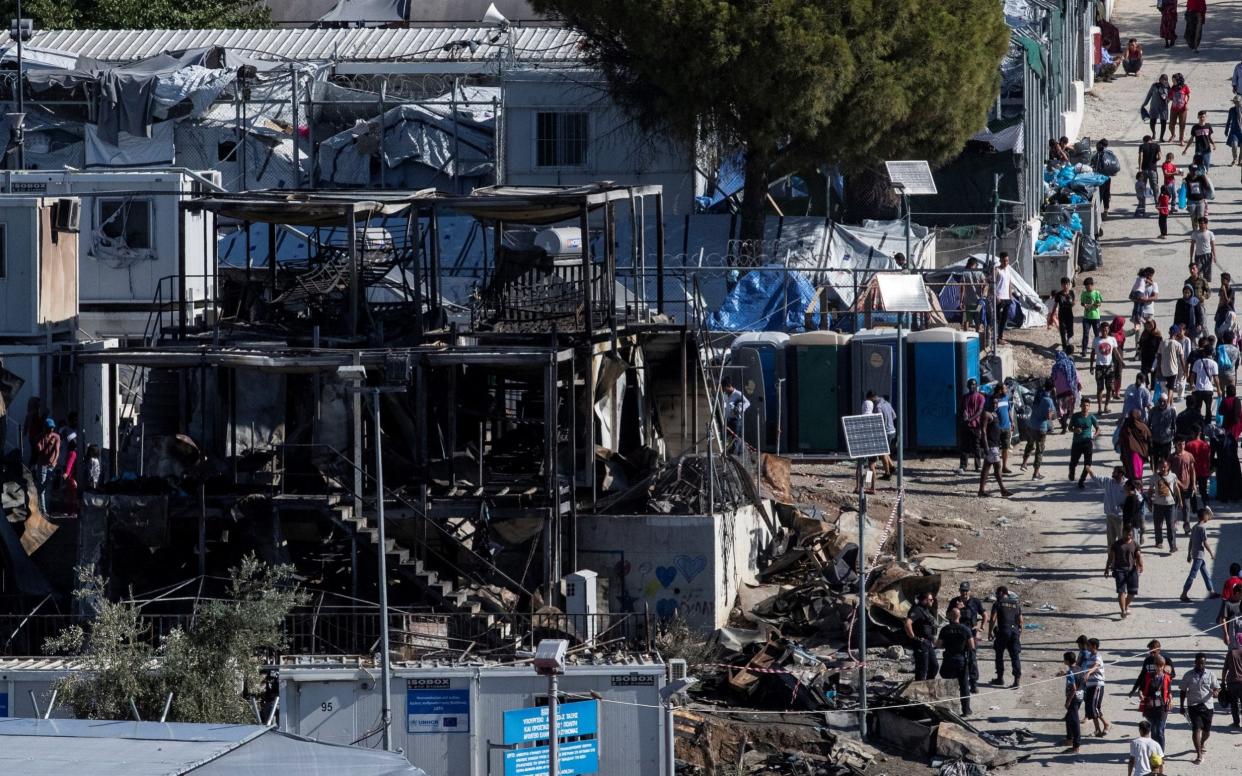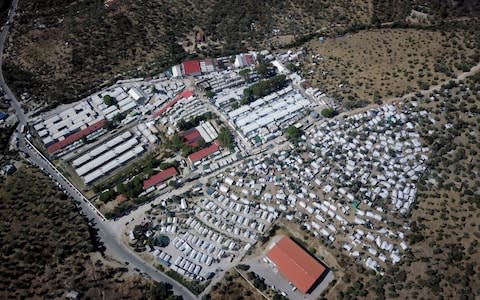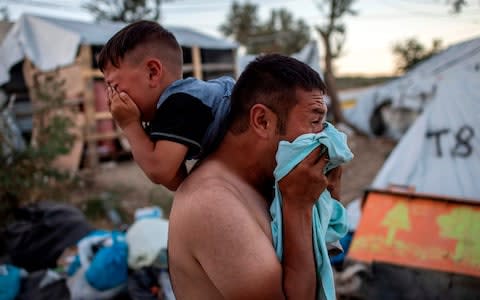UN calls for mass evacuation of 'hellish' migrant camp on Greek island of Lesbos

The United Nations called for migrants crammed into a squalid camp on the Greek island of Lesbos to be immediately transferred to the mainland, following a fire in which a woman and a child were killed.
The UN’s refugee agency said the situation in the notorious Moria camp, where 13,000 people are living in a facility designed for 3,000, is “critical”.
"We are calling to accelerate the transfers and improve conditions in Moria," said Boris Cheshirkov, UNHCR's spokesman in Greece.
The mayor of Lesbos also said asylum seekers needed to be moved off the island, which lies in sight of the Turkish coast.
Stratos Kytelis demanded the "immediate decongestion of our islands and for borders to be guarded".
The population of Moria has oscillated over the years as large groups are transferred to the Greek mainland, usually by ferry, only to be replaced by more asylum seekers crossing by sea from Turkey.
Clashes erupted between asylum seekers and Greek police on Sunday evening, after the blaze broke out in some of the shipping containers in which many migrants are housed.
A woman and child died in the fire and at least 17 people were hurt.
Police fired tear gas to control furious asylum seekers, who accused the authorities of taking too long to respond to the blaze. Police reinforcements were flown to Lesbos in Hercules transport planes.
There were reports that as many as two children may have died in the fire.
"We found two children completely charred and a woman dead. We gave the children covered in blankets to the fire brigade," Fedouz, a 15-year-old Afghan, told AFP.
Humanitarian organisations condemned the “hellish” conditions in the camp, which is so packed that thousands of Afghans, Syrians and other nationalities have to sleep in tents in a huge spillover area in olive groves outside the facility.
Medical teams from Medecins Sans Frontieres were on Monday assessing people who had been affected by the violence.

“We are outraged by the events in Moria and the reported death of at least two people, a mother and a child, as a result of a fire inside the camp. No one can call the fire and these deaths an accident,” said Marco Sandrone, MSF’s field coordinator on Lesbos.
“European and Greek authorities who continue to contain these people in these conditions have a responsibility in the repetition of these dramatic episodes.”
The charity said it was “high time to stop” what it called an inhumane policy of containment and called for the urgent evacuation of people “out of the hell that Moria has become.”
It is the second death of a child in the camp in a week. Last week a five-year-old Afghan boy, who was either asleep or playing in a large cardboard box, was accidentally run over by a lorry.
The truck driver was delivering goods when he ran over the box without realising there was anyone inside it.
“The death of a mother and a baby is appalling, and a direct consequence of the EU's migration policies,” said Renata Rendón, Oxfam’s head of mission in Greece. She called for the evacuation of refugees held in the camp.

“People arriving in Greece should be relocated to safe accommodation across the EU, not crammed into dangerous spaces where their life is at risk.”
Greek officials said on Monday they would step up the rate of transfers to reception centres on the mainland.
With cold weather approaching, the government intends to move at least 3,000 people from Lesbos and camps on other Aegean islands by the end of October.
More than 9,000 asylum seekers reached Greece in August, the highest number in the three years since the EU and Turkey implemented a deal to shut off the Aegean migrant route.
More than 8,000 people have arrived in September, according to the UNHCR.

